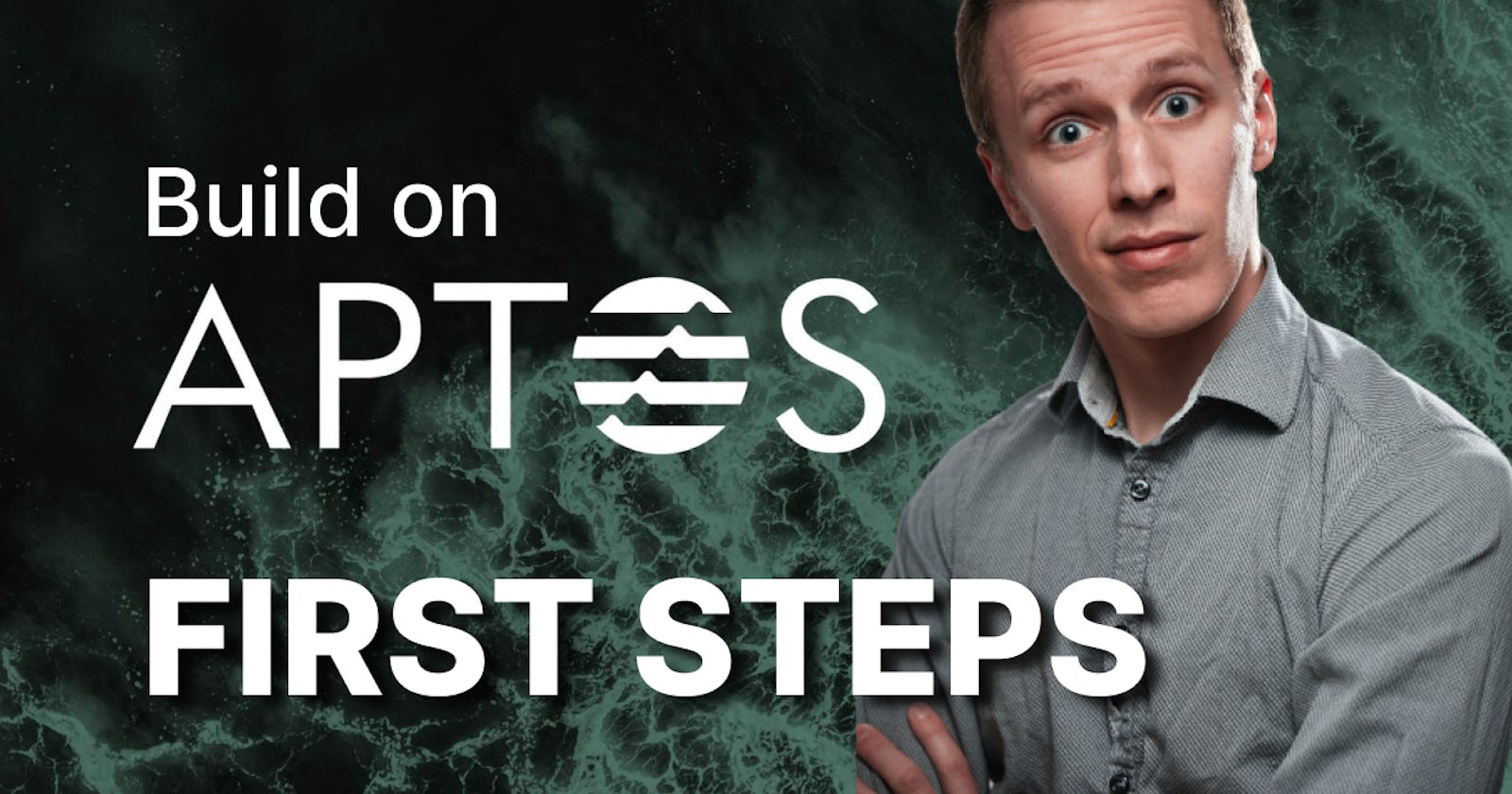Aptos Hello World
We are going to build a basic module to learn how to build on Aptos. Modules in Aptos are like contracts in EVM chains.
- Getting started: Clone github.com/aeither/aptos-starter
only the .move files and Move.toml are required to follow this guide.
- Move.toml
- sources/
1. Setup Wallet
Install Martian Wallet extension. It's the most Popular wallet with more than 600K downloads
2. Install Aptos CLI
I followed these steps to install on my macOS Ventura:
- Download zip It has this pattern:
aptos-cli-<version>-<platform>ex.aptos-cli-1.0.0-MacOSX-x86_64.zip - Unzip the downloaded file. Move the extracted
aptosbinary file tousr/local/bin/ - Open terminal and type
aptos helpto verify it is installed correctly.
If it does not work for you or you are not a Mac user, here is the official guide to install the CLI
3. Setup IDE
Download visual studio code and install move-analyzer extension.
(Optional) The extension for Move (.move) enables syntax highlighting, commenting/uncommenting, simple context-unaware completion suggestions while typing, and other basic language features in Move files.
marketplace.visualstudio.com/items?itemName..
4. Initiate the project
Move to the project folder aptos-starter. Remove .aptos. Open the terminal and run:
aptos init
It will generate .aptos/config.yaml config file containing a funded address on devnet with default settings.
If more funds are needed:
aptos account fund-with-faucet --account default
5. Compile
aptos move compile --named-addresses hello_blockchain=default
Terminal response:
Compiling, may take a little while to download git dependencies...
INCLUDING DEPENDENCY AptosFramework
INCLUDING DEPENDENCY AptosStdlib
INCLUDING DEPENDENCY MoveStdlib
BUILDING Examples
{
"Result": [
"21db140d69608013d6791d9d8157102251798317c565350f519e361dd507e963::message"
]
}
The --named-addresses is a list of address mappings that must be translated in order for the package to be compiled to be stored in the default account. --save-metadata is required to publish the package.
6. Test
aptos move test --named-addresses hello_blockchain=default
Output:
INCLUDING DEPENDENCY AptosFramework
INCLUDING DEPENDENCY AptosStdlib
INCLUDING DEPENDENCY MoveStdlib
BUILDING Examples
Running Move unit tests
[ PASS ] 0x21db140d69608013d6791d9d8157102251798317c565350f519e361dd507e963::message_tests::sender_can_set_message
[ PASS ] 0x21db140d69608013d6791d9d8157102251798317c565350f519e361dd507e963::message::sender_can_set_message
Test result: OK. Total tests: 2; passed: 2; failed: 0
{
"Result": "Success"
}
Publish
aptos move publish --named-addresses hello_blockchain=default
Terminal response:
Compiling, may take a little while to download git dependencies...
INCLUDING DEPENDENCY AptosFramework
INCLUDING DEPENDENCY AptosStdlib
INCLUDING DEPENDENCY MoveStdlib
BUILDING Examples
package size 1813 bytes
Do you want to submit a transaction for a range of [702600 - 1053900] Octas at a gas unit price of 100 Octas? [yes/no] >
yes
{
"Result": {
"transaction_hash": "0x1bfe2ac5c916c7f3deffc8c7a37754641b0ffed430ca4323d10d286036445a91",
"gas_used": 7026,
"gas_unit_price": 100,
"sender": "1e5fcba9d2a7b14194b331d04adbe354139e17dd520ac53d9d05ba7bca420e5d",
"sequence_number": 0,
"success": true,
"timestamp_us": 1667203290078387,
"version": 18058074,
"vm_status": "Executed successfully"
}
}
If we go to Aptos Explorer , switch to Devnet and open Modules under our account. We can find the bytecode with the ABI of the contract we just deployed.

Interact with the module
Calling contract function with:
aptos move run --assume-yes \
--function-id 'default::message::set_message' \
--args 'string:hello, blockchain'
It will print out the following on success:
{
"Result": {
"transaction_hash": "0x8185fe45c002d41c491005b489a2faeea75b0bf9c4a0be4218e47a3da6a6eaf0",
"gas_used": 782,
"gas_unit_price": 100,
"sender": "1e5fcba9d2a7b14194b331d04adbe354139e17dd520ac53d9d05ba7bca420e5d",
"sequence_number": 1,
"success": true,
"timestamp_us": 1667203753729894,
"version": 18087040,
"vm_status": "Executed successfully"
}
}
We passed --function-id with a value of this <ADDRESS>::<MODULE_ID>::<FUNCTION_NAME> structure.
Head to the explorer and open the resources tab.

By opening message::MessageHolder you can see the new message.
Conclusion
You can find the original here by Aptos Foundation. This is a modified version where I have added, removed, and modified pieces of content to better fit my journey.
PD: You should NOT expose to the public the .aptos folder as it contain the privateKey.
Learn more: github.com/aeither/aptos-starter/blob/main/..

